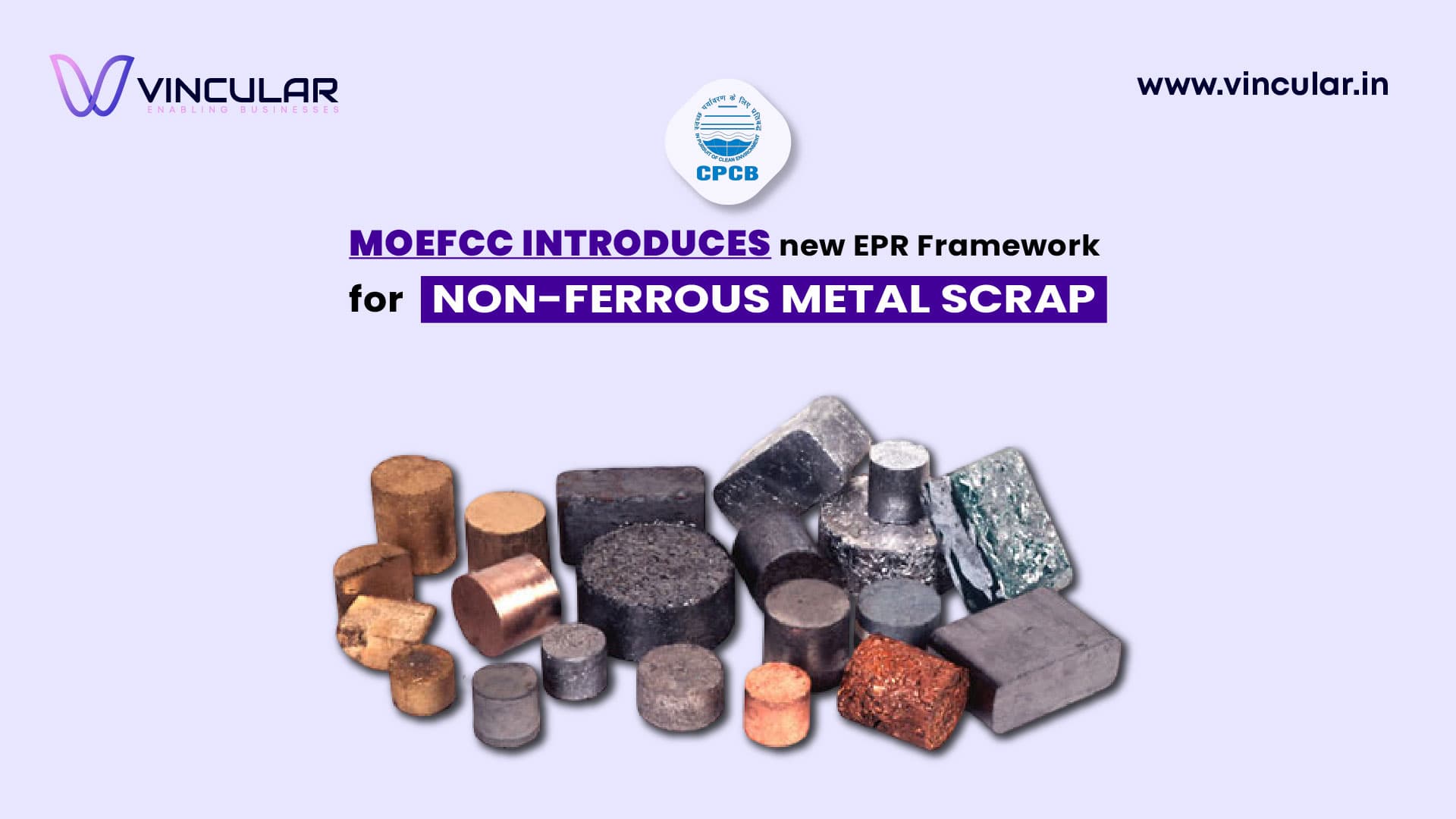
EPR Framework for Scrap of Non-Ferrous Metals
On 1 July 2025, the Ministry of Environment, Forest and Climate Change (MoEF&CC) introduced a landmark Extended Producer Responsibility (EPR) framework focused on the management, recycling, and refurbishment of scrap from non-ferrous metals like aluminium, copper, and zinc. This move aligns with India’s commitment to resource efficiency and circular economy, and it will significantly impact businesses across the entire value chain.
Key Highlights of the Amendment:
Dedicated EPR Chapter:
A new Chapter VIII in the Plastic Waste Management Rules, 2023, now covers non-ferrous metal scrap.
Mandatory CPCB Registration:
All stakeholders must register on the Central Pollution Control Board (CPCB) online portal:
-
Manufacturers
-
Producers
-
Recyclers
-
Refurbishers
-
Collection agents
Effective Dates:
-
Rules come into force from 1 April 2026.
-
EPR targets apply starting from FY 2026–27.
EPR Certificates:
-
Issued by recyclers and refurbishers.
-
Producers can purchase these certificates to meet obligations.
-
Certificates are valid for only two years.
Progressive Recycling Targets:
-
Start at 10% of the average life of products.
-
Increase progressively to 75% by FY 2032–33.
Recycled Content Requirements:
-
Minimum recycled content to be used in new products manufactured domestically.
Environmental Compensation:
-
Applicable in cases of non-compliance.
Who needs to pay attention?
-
Non-ferrous metal product manufacturers
-
Importers and assemblers of metal-containing products
-
Importers of used devices, products, or scrap
-
Recycling and refurbishment companies
-
Large bulk consumers
Essentially, anyone involved in making, importing, processing, refurbishing, or collecting non-ferrous metals will have responsibilities under these rules.
Why this matters:
This framework isn’t just about compliance; it’s about moving towards a more sustainable, resource-efficient future. By working towards these EPR targets, businesses can:
-
First and foremost, lower their environmental impact
-
At the same time, actively support India’s vision for a circular economy
-
And importantly, strengthen trust and credibility among today’s eco-conscious consumers
In the end, acting early and responsibly isn’t just about staying compliant — it’s about making a real investment in a cleaner, greener tomorrow for everyone.
Access the official notification here: EPR Framework for Scrap of Non-Ferrous Metals.
Follow us and Stay Updated!
If you are lagging behind with the latest compliance news, updates, amendments, and so on, then we have various options for you to stay up-to-date.
Subscribe to our Free Monthly Newsletter or watch our Latest News & Updates Space for daily updates to stay ahead with the latest regulations and notifications without spending a dime!